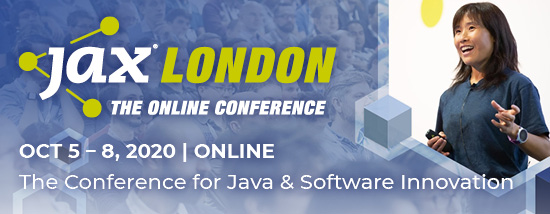Women are helping to change the technology landscape in a variety of ways. Their influence can be felt across enterprise IT, cloud computing and software development. Women are taking on leadership positions and influencing the future direction of technology businesses, to the extent that they are now leading new corporate initiatives and developing new approaches to implementing socially responsible programmes.
Corporate social responsibility (CSR) is an important obligation for businesses. It throws a lifeline to non-governmental, non-profit and charitable organisations. The contribution businesses can make in terms of sponsorship and support cannot be underestimated. They provide resources and expertise that non-profit sectors don’t have. However, the world around us is constantly changing and CSR programmes need to innovate to keep up with the times.
SEE ALSO: 3 out of 5 developers contribute to open source, new Slashdata report claims
Socially responsible software
A few years ago, it occurred to me that if large enterprises can adopt agile solutions that allow them to respond to changing conditions, why shouldn’t non-profit organisations be able to do the same? I asked myself, what’s preventing digitally savvy enterprises from collaborating with non-profit organisations more effectively to support them on their digital journey? Enterprise solutions are increasingly based on open source code, a shared resource which is freely available; a resource that provides non-profit organisations with access to countless open source projects, all supported by digital communities willing to lend a helping hand. Open source also facilitates effective and fruitful collaboration across different sectors via shared platforms.
I am passionate about social innovation and how it can provide a new strategic vision to help non-profit organisations adapt quickly and innovate more effectively. It also provides a framework for cross sector collaboration to address problems that affect us all.
So, I decided to pursue my passions and develop a programme that would allow non-profit organisations to take full advantage of what open source has to offer. Fortunately, I work for a company that gave me the time and opportunity to develop a comprehensive, socially responsible and innovative programme. In the space of a few years, while I was still holding down a full time position within Red Hat’s Global Services team, the programme came to life. After delivering a proof of concept and a series of live engagements, my peers, who had fully supported me throughout, gave me the green light to run the programme as a standalone initiative.
Making non-profits digitally capable
Non-profit organisations do not have the funds to invest in new software, cloud and IT infrastructures. They are reliant on donations and sponsorships that are spent directly on charitable projects. Even funds made available to digital teams don’t always translate to new capabilities. The social innovation model provides businesses and non-profit organisations with a new way to interact. It helps non-profits to understand the value of open source and to build shared technological platforms that help them to become more digitally capable. It provides them with the expertise and resources they need to take their open source solutions to the next level.
To date, the programme has helped UNICEF develop a solution that aggregates critical data and information to put emergency response plans into place in developing countries. These plans are developed specifically to address areas where school children could be affected by natural disasters, disease or lack of connectivity. It also provided Greenpeace with the help and expertise it needed to develop its next generation engagement platform to empower supporters to act and work together on green initiatives.
Collaboration leads to innovation
However, this isn’t just about standalone projects. The programme is rooted in making connections, establishing partnerships and equipping non-profit organisations with the right tools and open source expertise that will sustain them for many years to come.
Open source is built on collaboration. The programme was established to create a community model that would enable non-profit organisations to work together across open and shared platforms. They can share ideas, identify new use cases and develop relevant solutions. This model will allow non-profit organisations to make serious contributions to open source projects, and develop a new generation of software and solutions for non-profit sectors.
They can do this with the support of commercial businesses willing to invest time and resources into open source projects. So much could be achieved with more openness and cross sector collaboration. It would be possible to address some of the world’s most pressing issues such as poverty, education, conservation and disease.
For example, during the pandemic there have been many examples of organisations developing similar medical solutions independently, when they could collaborate more effectively, and more quickly, through shared platforms. Collaboration is essential to addressing and overcoming global issues. The programme has been actively involved in connecting healthcare organisations with open source projects focused on contact tracing, electronic medical records and interoperable solutions that deliver clinical data in real-time in addition to working with partners to develop specific solutions to tackle the situation. So much can be achieved when businesses, organisations and communities are willing to pool their knowledge and resources.
SEE ALSO: “The Open Source Way has proven itself as the leading way to develop software solutions”
Social innovation
The Social Innovation Programme provides a new template for CSR. One where technology businesses can leverage their capabilities to help support the communities that they also depend on. It allows businesses to have a more direct impact on socially responsible programmes by putting innovation to work for the greater good. Providing people, time and investment to nurture and deliver shared solutions that have a broader societal impact is extremely positive. It’s something all companies should consider. It allows them to develop holistic strategies that will make them more resilient and capable of addressing economical and global social issues.
The open nature and culture of Red Hat provided the framework to develop the programme. It’s an open, inclusive and collaborative environment that provides the space and opportunity for individuals to succeed, regardless of gender or background. It has a culture that I believe Ada Lovelace would have thrived in. I hope she would be pleased to see that women can make a difference. I was given a platform to develop the social innovation initiative. I was able to show the way and keep iterating on the concept until it became a reality. Since then volunteers have come forward, from every level of the organisation, every department and region, to offer their support and participate in worthwhile projects. Social innovation programmes provide a sustainable strategy that keeps building on a commitment to use open source software for the greater good.
The post Technology as a Source for Good appeared first on JAXenter.
Source : JAXenter















